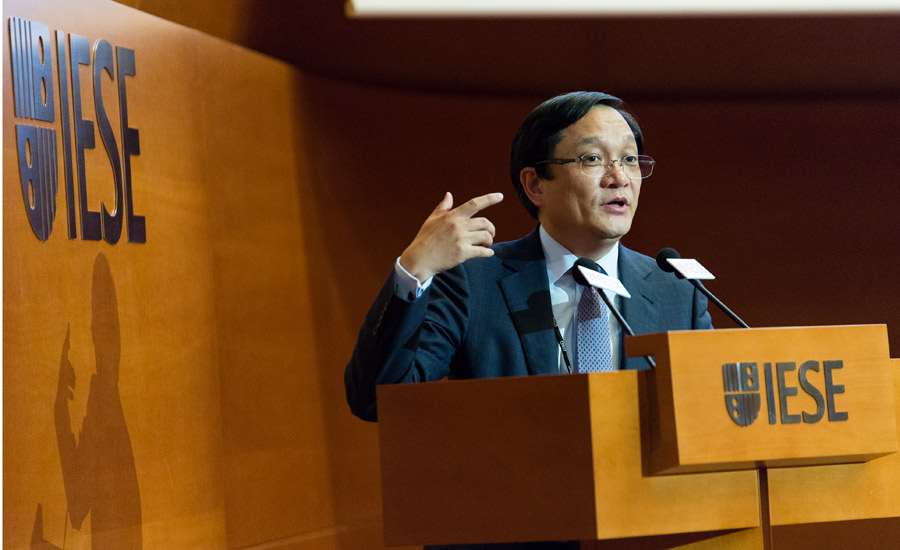
“Why shouldn’t management training be just as relevant to a headmistress as an aspiring consultant?” asks Della Bradshaw, asserting that business schools have a role in educating a broader range of managers in society, in order to drive future credibility in business.
The former Business Education Editor of the Financial Times gave a wake up call to her audience during her reflections at the European Foundation for Management Development conference this week.
Bradshaw was just one of the distinguished names spanning five continents to come together at IESE and discuss innovation and research in business education, as well as what the future holds. Held at the Barcelona campus, the conference featured talks from experts from the education world – from Prof. Yuang Ding, Vice President and Dean of CEIBS business school in China, and Eric Cornuel, Director General and CEO at EFMD, to IESE’s own Profs. Pankaj Ghemawat and Jordi Canals.
Among the experience and thoughts shared at the conference, recurring themes included globalization, leadership, new forms of government, management, business school organization, and innovation in research and education.
Responsible for launching the business education department of the FT, as well as the influential management education rankings, Bradshaw benefits from 20 years of observation in the field. So the journalist gave a unique point of view on the evolution of management education thus far, as well as thoughts on how business schools should move forward.
Not ‘What’ but ‘How’ You Teach
“There has not been much change in terms of what is taught,” she says, “There is little globalization on curriculums and, while some content appears to be new, such as leadership or entrepreneurship, these are often new terms for practices that have been around for much longer,” she adds. “Ultimately, this doesn’t matter – banks aren’t going anywhere so we need to teach banking. But the structure of how it is taught does need to evolve.”
One concern is the delivery mechanisms of education. “The democratization of learning is happening through digitization,” she says, referring to the example of Harvard’s HBX online learning program, which feature no live sessions with professors. “But are business schools moving into the digital age as much as they should be?”
Changing Face of Students
The changing demographics of potential students is another key consideration for the future, says Bradshaw. “Those entering the workforce now are unlikely to retire until the age of 75 years old. Business schools should therefore offer more life-long learning for managers to return to again and again after their MBA.”
Educational Focus Mirrors Economy
CEIBS Dean, Yuang Ding, proved out Bradshaw’s point on ensuring programs keep up with their audience. During his session, he used his business school in a case study. “CEIBS was born out of a need for trained talent for multinationals operating in China 22 years ago,” he explains, “so it was originally a one-way dissemination of information from abroad.”
The first Chinese school to break into the FT ranking; CEIBS was a success story from the start. But in the past five years, as the Chinese economy has shifted focus from manufacturing to services, and from home to abroad, the school’s mission has had to evolve from “educating business leaders in China for the world” to “educating business leaders in the world for China.”
Demand for business education is now coming from Chinese homegrown companies, versus exclusively from multinationals. “CEIBS was challenged for more Chinese relevant content,” he says, “so we moved from information dissemination to creation.”
Answering Society’s Needs
But there are a host of ways in which Bradshaw suggests business schools will need to respond to the needs of society going forward. “The reputation of companies is declining,” she says, “business has a real role to play in immigration, urbanization, environmental problems, and social issues, and business schools have a real role in teaching them how to do it.”
During his talk, Ding gave an illustration of Corporate Social Responsibility practices in action: “At our Ghanaian campus, we educate Chinese and African executives side by side, but the education is free of charge for Africans.”
There is still a way to go, argues Bradshaw, “Society is looking for answers, business is looking for answers, and business schools have to provide them.”